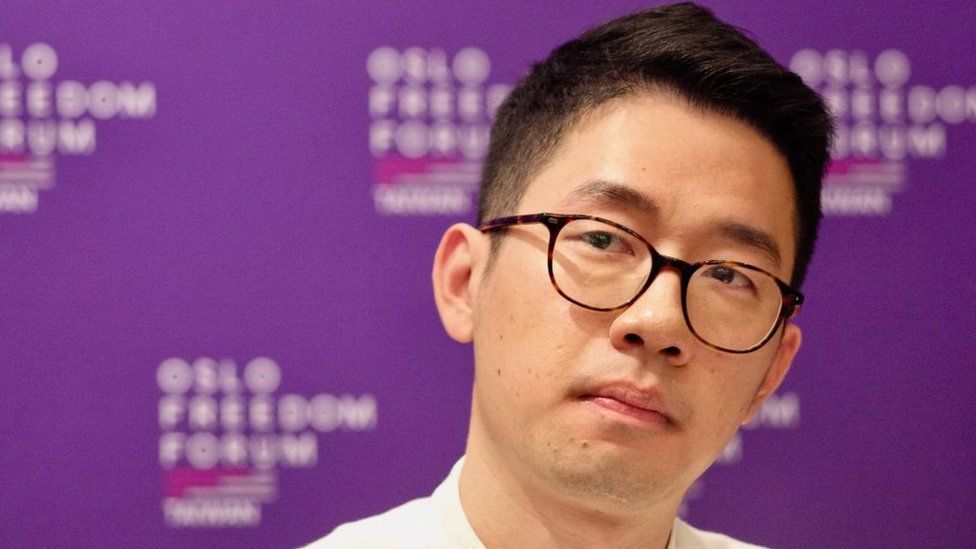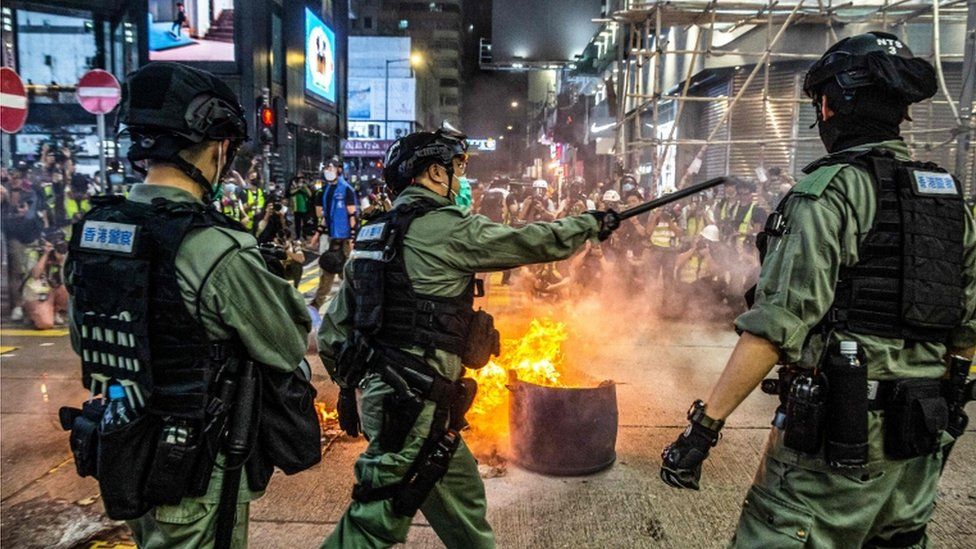After Hong Kong placed bounties on the heads of eight pro-democracy activists who fled the territory, China claimed that the UK was harboring fugitives.
China's embassy in London released the statement after the UK declared it would not put up with any attempts by China to intimidate people there or abroad.
Following the 2020 implementation of a comprehensive national security law by Beijing, the eight left the formerly British territory.
Chief Executive John Lee of Hong Kong said they would be "pursued for life.".
In order to avoid living in fear, he pleaded with them to give themselves up.
An official from the Chinese embassy in London said late on Monday that "British politicians have openly offered protection for fugitives" and denounced what they called "crude interference in Hong Kong's rule of law and China's internal affairs.".
A HK$1 million ($100,581; $127,637) reward was put forth for the activists' capture on Monday.
The eight people mentioned in the announcement are all residents of the UK, US, and Australia, nations without extradition agreements with China.
A pro-democracy activist who fled Hong Kong told the BBC that the reward offered for his capture has made his life more dangerous.
Living in the UK, Nathan Law said the bounty made him "more cautious" about disclosing his whereabouts.

The eight targeted activists are charged with conspiring with foreign forces, a crime that carries a life sentence in prison. The offense is covered by Hong Kong's strict security law, which was put in place three years ago following significant pro-democracy demonstrations in 2019.
Beijing claims that the security law is necessary to stabilize the city, but detractors claim it is intended to quell dissent.
"We call on Beijing to repeal the national security law and for the Hong Kong authorities to stop persecuting those who defend freedom and democracy," said UK Foreign Secretary James Cleverly. ".
Hundreds of pro-democracy activists have been detained and found guilty in Hong Kong under the law. .
One of the most well-known members of the pro-democracy movement, Mr. Law, said that while he felt "relatively safe" in the UK, he would need to be more careful about sharing his whereabouts or when passing through certain nations.
"All these things could put my life in danger if I'm not watchful about who I interact with or where I go. It forces me to lead a more cautious life. ".
The executive director of the Hong Kong Democracy Council, Anna Kwok, one of the other exiled activists, claimed the bounty was intended to intimidate her and her fellow activists.
They were all "united in our fight for freedom and democracy in our home, Hong Kong," she claimed in a statement.
She admitted that when she first learned about the bounties, she was initially shocked, but she felt compelled to speak out.
"That's exactly the kind of thing the Chinese Communist Party and the Hong Kong government would do: intimidate people into doing nothing and silence them. .
"So as soon as I heard about it, I thought, 'OK, I should make this a big thing and I should definitely talk about the transnational repression that's going on here and also the scare tactics,' as well as how the Hong Kong government is just trying to see when the international community would smack their hands and tell them to back off. ".
The announcement left Australia's government "deeply disappointed," according to Penny Wong, the country's foreign minister, and Australia "remains deeply concerned by the continuing erosion of Hong Kong's rights, freedoms, and autonomy.".
The action "sets a dangerous precedent that threatens the human rights and fundamental freedoms of people all over the world," according to the US State Department.
The announcement also lists Ted Hui, Dennis Kwok, Mung Siu-tat, Elmer Yuen, Finn Law, and Kevin Yam as the additional six activists.
Possibly of interest to you is:.







